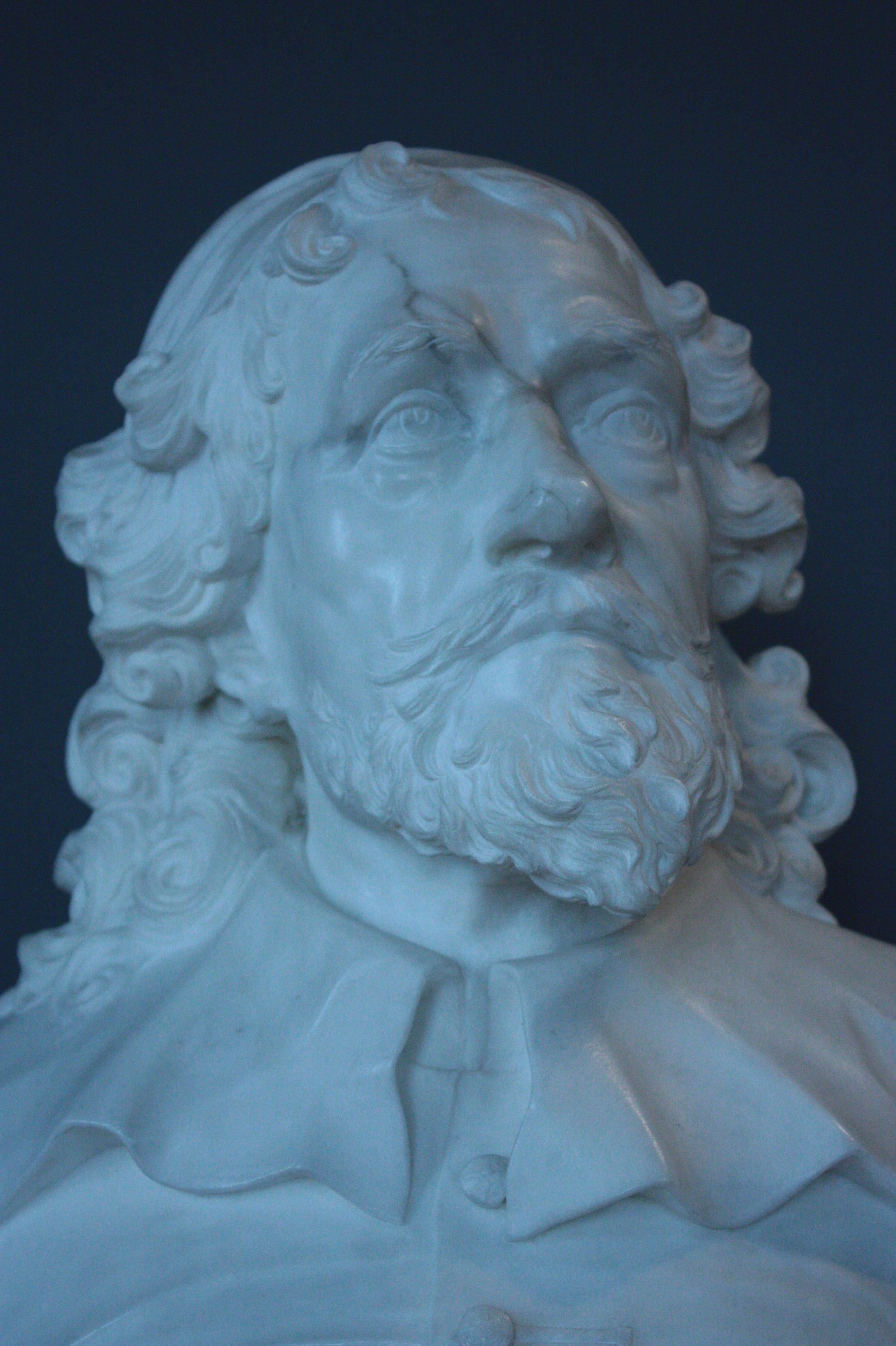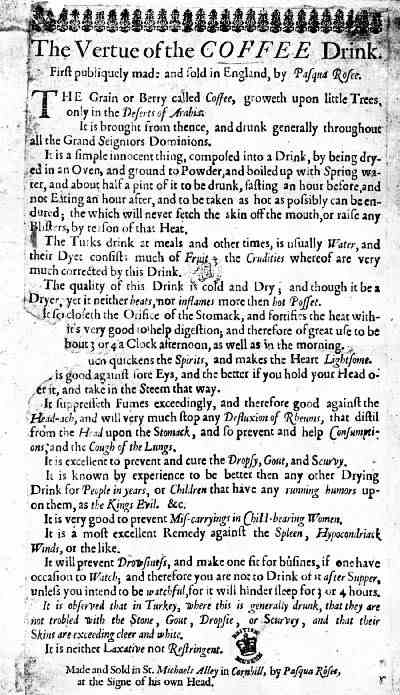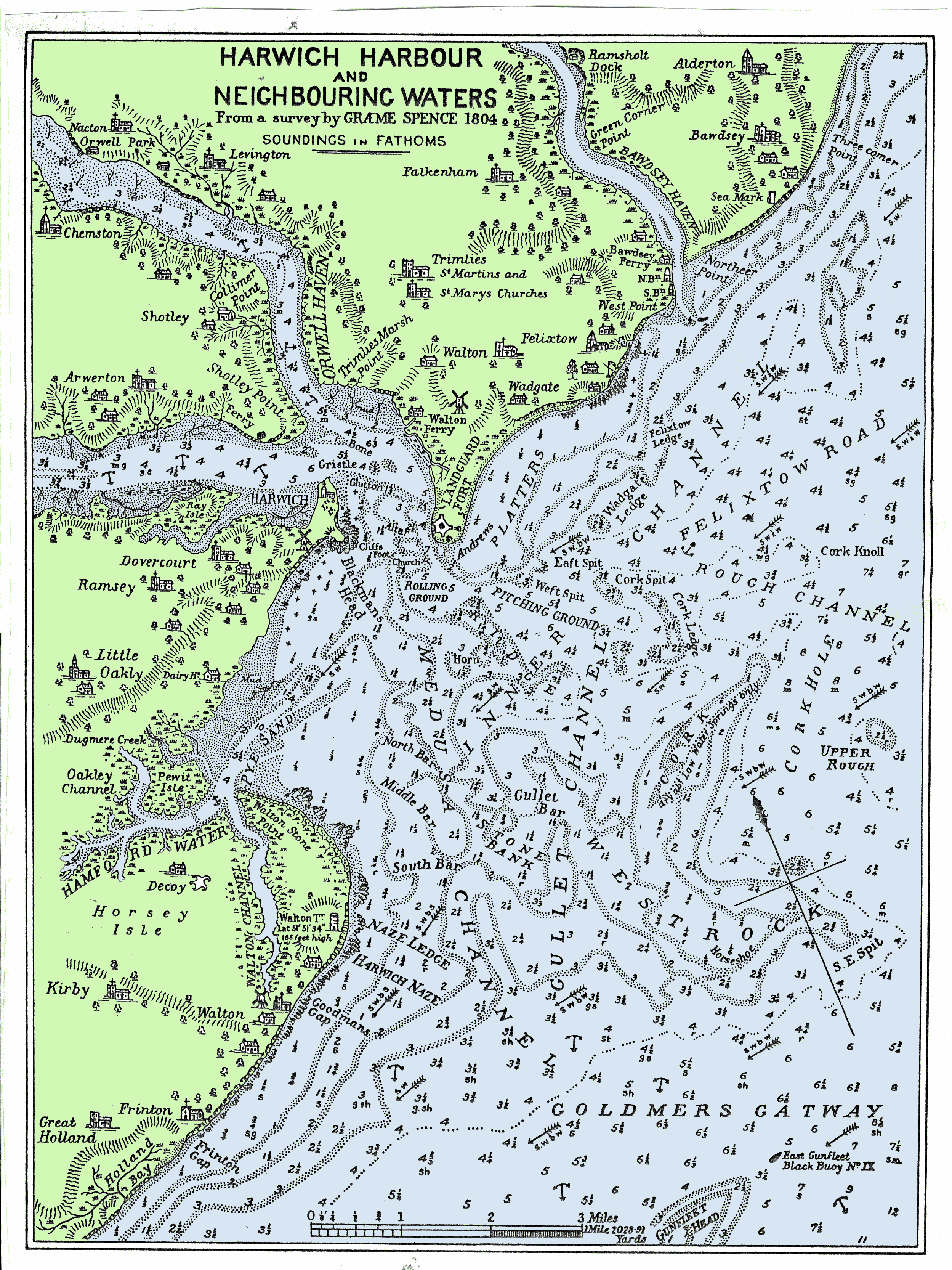|
1652 In England
Events from the year 1652 in England. Incumbents * Parliament – First Commonwealth Rump Events * 19 May – First Anglo-Dutch War: Battle of Dover fought off Dover between Lt.-Admiral Maarten Harpertszoon Tromp's 42 Dutch ships and 21 English ships divided into two squadrons, one commanded by Robert Blake and the other by Nehemiah Bourne. * 13 June – George Fox preaches to a large crowd on Firbank Fell in Westmorland, leading to the establishment of the Religious Society of Friends (Quakers). * 30 June – First Anglo-Dutch War: Britain formally declares war on the Netherlands. * 26 August – First Anglo-Dutch War: An English fleet attacks an outward-bound convoy of the United Provinces escorted by 23 men-of-war and six fire ships commanded by Vice-Commodore Michiel de Ruyter at the Battle of Plymouth; the Dutch escape. * 6 September – First Anglo-Dutch War: Battle of Elba. * 8 October – First Anglo-Dutch War: Battle of the Kentish Knock fought in the North Sea about 3 ... [...More Info...] [...Related Items...] OR: [Wikipedia] [Google] [Baidu] |
1652
Events January–March * January 8 – Michiel de Ruyter marries the widow Anna van Gelder and plans retirement, but months later becomes a vice-commodore in the First Anglo-Dutch War. * February 4 – At Edinburgh, the parliamentary commissioners of the Commonwealth of England proclaim the Tender of Union to be in force in Scotland, annexing the Scottish nation with the concession that Scotland would have 30 representatives in the parliament of the English Commonwealth. * February 12 – Oliver Cromwell, England's Lord Protector, announces that his Council of Scotland will regulate church affairs as part of the Terms of Incorporation of Scotland into England, and eliminates Presbyterianism as Scotland's state religion. * March 29 – A total solar eclipse occurs on (Black Monday, or on 8 April New Style in the Gregorian calendar). April–June * April 6 – Dutch sailor Jan van Riebeeck establishes a resupply camp for the Dutch East India ... [...More Info...] [...Related Items...] OR: [Wikipedia] [Google] [Baidu] |
Battle Of Elba
The naval Battle of Elba (or Battle of Monte Cristo) was a naval battle which took place on 28 August 1652 during the First Anglo-Dutch war, between a Dutch squadron under Johan van Galen and an English squadron under Captain Richard Badiley. Battle The English were trying to reach Livorno, where a squadron under Captain Henry Appleton was under siege by the Dutch squadron. Leaving four of his fourteen vessels to maintain the watch over Livorno, van Galen took his remaining ten ships to intercept Badiley's squadron. The two encountered each other between Montecristo and Elba Islands. The ''Phoenix'' was captured by the ''Jaarsveld'', while the other English warships retreated into Porto Longone. The captured ship, ''Phoenix'', was recaptured 2 months later during a night raid at Livorno. Ships involved: Netherlands *''Jaarsveld'' 44 (Rear-Admiral Johan van Galen) *''Prinses Roijaal'' 34 (Albert Corneliszoon 't Hoen; killed) *''Wapen van Zeeland'' 32 (Joost Willemszoon Bl ... [...More Info...] [...Related Items...] OR: [Wikipedia] [Google] [Baidu] |
Inigo Jones
Inigo Jones (; 15 July 1573 – 21 June 1652) was the first significant architect in England and Wales in the early modern period, and the first to employ Vitruvian rules of proportion and symmetry in his buildings. As the most notable architect in England and Wales, Jones was the first person to introduce the classical architecture of Rome and the Italian Renaissance to Britain. He left his mark on London by his design of single buildings, such as the Queen's House which is the first building in England designed in a pure classical style, and the Banqueting House, Whitehall, as well as the layout for Covent Garden square which became a model for future developments in the West End. He made major contributions to stage design by his work as theatrical designer for several dozen masques, most by royal command and many in collaboration with Ben Jonson. Early life and career Beyond the fact that he was born in Smithfield, London, as the son of clothworker Inigo Jones Snr., and ... [...More Info...] [...Related Items...] OR: [Wikipedia] [Google] [Baidu] |
John Radcliffe (English Physician)
John Radcliffe (1650 – 1 November 1714) was an English physician, academic and politician. A number of landmark buildings in Oxford, including the Radcliffe Camera (in Radcliffe Square), the Radcliffe Infirmary, the Radcliffe Science Library, Radcliffe Primary Care and the Radcliffe Observatory were named after him. The John Radcliffe Hospital, a large tertiary hospital in Headington, is also named after him. Life Radcliffe was born the son of George Radcliffe and Anne Loader, in Wakefield, Yorkshire, where he was baptised on 23 January 1653. He was educated at Queen Elizabeth Grammar School and Northallerton Grammar School and graduated from the University of Oxford, where he was an exhibitioner at University College tutored by Obadiah Walker, to become a Fellow of Lincoln College. He obtained his MD in 1682 and moved to London shortly afterwards. There he enjoyed great popularity and became royal physician to William III and Mary II. In 1690 he was elected Member of ... [...More Info...] [...Related Items...] OR: [Wikipedia] [Google] [Baidu] |
Thomas Otway
Thomas Otway (3 March 165214 April 1685) was an English dramatist of the Restoration period, best known for ''Venice Preserv'd'', or ''A Plot Discover'd'' (1682). Life Otway was born at Trotton near Midhurst, the parish of which his father, Humphrey Otway, was at that time curate. Humphrey later became rector of Woolbeding, a neighbouring parish, where Thomas Otway was brought up and expected to commit to priesthood. He was educated at Winchester College, and in 1669 entered Christ Church, Oxford, as a commoner, but left the university without a degree in the autumn of 1672. At Oxford he made the acquaintance of Anthony Cary, 5th Viscount Falkland, through whom, he says in the dedication to '' Caius Marius'', he first learned to love books. In London he made acquaintance with Aphra Behn, who in 1672 cast him as the old king in her play, ''Forc'd Marriage, or The Jealous Bridegroom'', at the Dorset Garden Theatre. However, due to severe stage fright, he gave an abysmal performan ... [...More Info...] [...Related Items...] OR: [Wikipedia] [Google] [Baidu] |
Gemstone
A gemstone (also called a fine gem, jewel, precious stone, or semiprecious stone) is a piece of mineral crystal which, in cut and polished form, is used to make jewelry or other adornments. However, certain rocks (such as lapis lazuli, opal, and obsidian) and occasionally organic materials that are not minerals (such as amber, jet, and pearl) are also used for jewelry and are therefore often considered to be gemstones as well. Most gemstones are hard, but some soft minerals are used in jewelry because of their luster or other physical properties that have aesthetic value. Rarity and notoriety are other characteristics that lend value to gemstones. Apart from jewelry, from earliest antiquity engraved gems and hardstone carvings, such as cups, were major luxury art forms. A gem expert is a gemologist, a gem maker is called a lapidarist or gemcutter; a diamond cutter is called a diamantaire. Characteristics and classification The traditional classification in the West, wh ... [...More Info...] [...Related Items...] OR: [Wikipedia] [Google] [Baidu] |
English Language
English is a West Germanic language of the Indo-European language family, with its earliest forms spoken by the inhabitants of early medieval England. It is named after the Angles, one of the ancient Germanic peoples that migrated to the island of Great Britain. Existing on a dialect continuum with Scots, and then closest related to the Low Saxon and Frisian languages, English is genealogically West Germanic. However, its vocabulary is also distinctively influenced by dialects of France (about 29% of Modern English words) and Latin (also about 29%), plus some grammar and a small amount of core vocabulary influenced by Old Norse (a North Germanic language). Speakers of English are called Anglophones. The earliest forms of English, collectively known as Old English, evolved from a group of West Germanic (Ingvaeonic) dialects brought to Great Britain by Anglo-Saxon settlers in the 5th century and further mutated by Norse-speaking Viking settlers starting in the 8th and 9th ... [...More Info...] [...Related Items...] OR: [Wikipedia] [Google] [Baidu] |
Pasqua Rosée
Pasqua Rosée was a 17th-century servant who opened the first coffee-house in London and possibly Britain. He was born into the ethnic Greek community of the Republic of Ragusa (now southernmost Croatia). In 1651 he became the servant of Daniel Edwards, an English merchant of the Levant Company who was living in Smyrna in the Ottoman Empire (now Turkey); part of Rosée's duties included preparing and serving his daily coffee. In late 1651 Edwards returned to Smyrna, taking Rosée with him. The number and frequency of friends visiting Edwards to drink coffee with him disrupted his social life, and he set up Rosée as the proprietor of a coffee-house near the Royal Exchange. As he was not a freeman of the City of London he was not able to trade; accordingly Edwards made his father-in-law's former apprentice, Christopher "Kitt" Bowman, a freeman of the City, join Rosée as a partner. The last known reference to Rosée was in 1658, after which Bowman ran the coffee-house with his wi ... [...More Info...] [...Related Items...] OR: [Wikipedia] [Google] [Baidu] |
Coffeehouse
A coffeehouse, coffee shop, or café is an establishment that primarily serves coffee of various types, notably espresso, latte, and cappuccino. Some coffeehouses may serve cold drinks, such as iced coffee and iced tea, as well as other non-caffeinated beverages. In continental Europe, cafés serve alcoholic drinks. A coffeehouse may also serve food, such as light snacks, sandwiches, muffins, fruit, or pastries. Coffeehouses range from owner-operated small businesses to large multinational corporations. Some coffeehouse chains operate on a franchise business model, with numerous branches across various countries around the world. While ''café'' may refer to a coffeehouse, the term "café" generally refers to a diner, British café (colloquially called a "caff"), "greasy spoon" (a small and inexpensive restaurant), transport café, teahouse or tea room, or other casual eating and drinking place. A coffeehouse may share some of the same characteristics of a bar or restaurant, ... [...More Info...] [...Related Items...] OR: [Wikipedia] [Google] [Baidu] |
Harwich
Harwich is a town in Essex, England, and one of the Haven ports on the North Sea coast. It is in the Tendring district. Nearby places include Felixstowe to the north-east, Ipswich to the north-west, Colchester to the south-west and Clacton-on-Sea to the south. It is the northernmost coastal town in Essex. Its position on the estuaries of the Stour and Orwell rivers, with its usefulness to mariners as the only safe anchorage between the Thames and the Humber, led to a long period of civil and military maritime significance. The town became a naval base in 1657 and was heavily fortified, with Harwich Redoubt, Beacon Hill Battery, and Bath Side Battery. Harwich is the likely launch point of the ''Mayflower'', which carried English Puritans to North America, and is the presumed birthplace of ''Mayflower'' captain Christopher Jones. Harwich today is contiguous with Dovercourt and the two, along with Parkeston, are often referred to collectively as ''Harwich''. History The tow ... [...More Info...] [...Related Items...] OR: [Wikipedia] [Google] [Baidu] |
Royal Navy Dockyard
Royal Navy Dockyards (more usually termed Royal Dockyards) were state-owned harbour facilities where ships of the Royal Navy were built, based, repaired and refitted. Until the mid-19th century the Royal Dockyards were the largest industrial complexes in Britain. From the reign of Henry VII up until the 1990s, the Royal Navy had a policy of establishing and maintaining its own dockyard facilities; (although at the same time, as continues to be the case, it made extensive use of private shipyards, both at home and abroad). Portsmouth was the first Royal Dockyard, dating from the late 15th century; it was followed by Deptford, Woolwich, Chatham and others. By the 18th century, Britain had a string of these state-owned naval dockyards, located not just around the country but across the world; each was sited close to a safe harbour or anchorage used by the fleet. Royal Naval Dockyards were the core naval and military facilities of the four Imperial fortresses - colonies which ena ... [...More Info...] [...Related Items...] OR: [Wikipedia] [Google] [Baidu] |
Battle Of Dungeness
The naval Battle of Dungeness took place on 30 November 1652 (10 December in the Gregorian calendar) during the First Anglo-Dutch War near the cape of Dungeness in Kent. Background In September 1652 the government of the Commonwealth of England, the Council of State, mistakenly believing that the United Provinces after their defeat at the Battle of the Kentish Knock would desist from bringing out a fleet so late in the season, sent away ships to the Mediterranean and the Baltic. At the same time the largest English vessels remained in repair and active ships were undermanned as sailors deserted or rioted because their wages were in arrears. This left the English weakened and badly outnumbered in home waters. Meanwhile, the Dutch were making every effort to reinforce their fleet. Dutch trade interests demanded that their navy would make a final effort to convoy merchantmen to the south. Battle On 21 November 1652 Old Style, 1 December New Style, Lieutenant-Admiral Maar ... [...More Info...] [...Related Items...] OR: [Wikipedia] [Google] [Baidu] |








